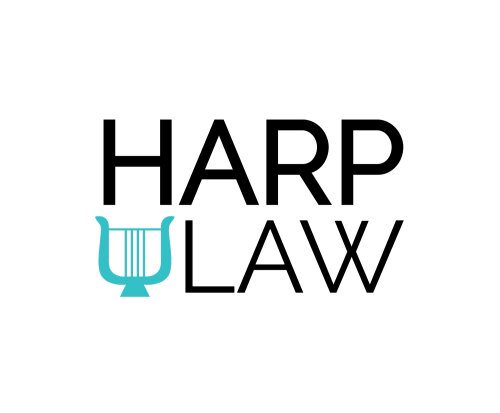Best Private Equity Lawyers in Detroit
Share your needs with us, get contacted by law firms.
Free. Takes 2 min.
List of the best lawyers in Detroit, United States
About Private Equity Law in Detroit, United States
Private equity law in Detroit, United States, governs the legal aspects of private investments in companies that are not publicly traded. Investors, ranging from individuals to large institutional funds, use private equity as a means to acquire, restructure, or expand existing businesses. In Detroit, private equity plays a vital role in business growth, supporting economic development and job creation across a range of sectors, notably manufacturing, automotive, technology, and real estate. Complex regulatory, tax, and transactional considerations mean that private equity deals in Detroit require thorough legal oversight to ensure compliance and successful execution.
Why You May Need a Lawyer
Hiring a lawyer for private equity matters is essential for several common scenarios. You may require legal help if you are negotiating an investment agreement, conducting due diligence for an acquisition, or drafting partnership documents. Legal professionals ensure compliance with federal, Michigan state, and local regulations, protecting your interests in buyouts, mergers, venture capital investments, and fundraising. Lawyers are crucial when handling disputes among stakeholders, structuring funds, evaluating disclosure requirements, or navigating exit strategies. Their expertise can reduce risk, maximize returns, and protect you from legal pitfalls that could otherwise be costly.
Local Laws Overview
In Detroit, private equity transactions are influenced by both federal laws, such as the Securities Act and the Investment Company Act, and Michigan-specific statutes. Local legal considerations may include state securities regulations, licensing requirements, and city-level taxation policies. Detroit businesses must also comply with Michigan’s Business Corporation Act, limited liability company statutes, and employment laws. Specific local ordinances, such as incentives for Detroit-based companies or reporting obligations, can impact deal structures and investor responsibilities. It's important to consult with a Detroit-based attorney familiar with these local nuances to ensure all regulations and fiduciary duties are properly addressed.
Frequently Asked Questions
What is private equity?
Private equity refers to investments made directly into private companies or buyouts of public companies that result in their delisting from public stock exchanges. These investments are usually made by funds or investors seeking to add value and realize a profit over time.
How does private equity differ from venture capital?
While both involve investing in private companies, venture capital generally focuses on startups and early-stage businesses, whereas private equity targets more established companies for growth, turnaround, or restructuring opportunities.
What types of businesses in Detroit are most likely to attract private equity?
In Detroit, key sectors include automotive, manufacturing, healthcare, technology, and real estate development. Businesses with growth potential or those undergoing transformation are often attractive to private equity investors.
Are there licensing or registration requirements for private equity funds in Michigan?
Private equity funds and managers may need to register with the Securities and Exchange Commission or state authorities, depending on their size and investor base. Michigan enforces its own securities regulations, which may apply in certain circumstances.
What is due diligence in a private equity transaction?
Due diligence is the comprehensive review of a target company’s financials, legal status, contracts, intellectual property, tax records, and other relevant materials to identify risks before an investment or acquisition occurs.
How are private equity deals typically structured?
Most deals involve a combination of equity and leveraged debt, often arranged through limited partnerships or limited liability companies. The structure will depend on the specific goals and risk tolerance of the private equity investors.
Are there specific Detroit or Michigan laws that impact private equity transactions?
Yes. Michigan’s Business Corporation Act, along with local tax laws, securities regulations, and employment statutes, can all impact transactions. Detroit may also have city-specific regulations affecting incentives or reporting.
What are common legal risks in private equity?
Risks include non-compliance with securities laws, breach of fiduciary duties, undisclosed liabilities, employment matters, tax issues, and contractual disputes. Consulting a lawyer can help you identify and manage these risks.
Can private equity investors influence management decisions?
Yes. Private equity investors often acquire significant control and may actively participate in strategic decisions, management changes, or operational improvements within the companies they invest in.
What should I look for in a Detroit private equity lawyer?
Choose a lawyer with experience in local and federal securities law, strong knowledge of Michigan business statutes, and a track record of structuring, negotiating, and closing private equity deals similar to your needs.
Additional Resources
- Michigan Department of Licensing and Regulatory Affairs (LARA) - for business and securities regulations - Securities and Exchange Commission (SEC) - federal securities rules and compliance - Detroit Regional Chamber - business resources, networking, and investment insights - Michigan Economic Development Corporation (MEDC) - programs for business growth and incentives - American Bar Association Section of Business Law - publications and standards for private equity practice
Next Steps
If you need assistance with private equity in Detroit, start by organizing your business goals and investment objectives. Gather all relevant financial, legal, and organizational documents. Next, consult with a Detroit-based private equity lawyer who understands local, state, and federal regulations as they apply to your situation. The lawyer will provide tailored advice, help structure your deal, negotiate terms, address compliance issues, and represent your interests throughout the transaction. Additionally, stay informed by reviewing resources from local economic and regulatory agencies. Taking these steps will help ensure your private equity venture proceeds smoothly and successfully.
Lawzana helps you find the best lawyers and law firms in Detroit through a curated and pre-screened list of qualified legal professionals. Our platform offers rankings and detailed profiles of attorneys and law firms, allowing you to compare based on practice areas, including Private Equity, experience, and client feedback.
Each profile includes a description of the firm's areas of practice, client reviews, team members and partners, year of establishment, spoken languages, office locations, contact information, social media presence, and any published articles or resources. Most firms on our platform speak English and are experienced in both local and international legal matters.
Get a quote from top-rated law firms in Detroit, United States — quickly, securely, and without unnecessary hassle.
Disclaimer:
The information provided on this page is for general informational purposes only and does not constitute legal advice. While we strive to ensure the accuracy and relevance of the content, legal information may change over time, and interpretations of the law can vary. You should always consult with a qualified legal professional for advice specific to your situation.
We disclaim all liability for actions taken or not taken based on the content of this page. If you believe any information is incorrect or outdated, please contact us, and we will review and update it where appropriate.












